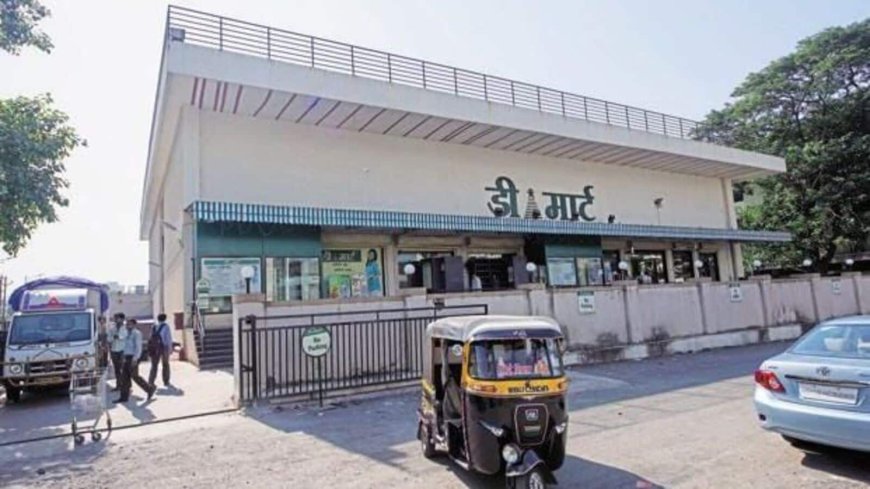On June 10, 2025, shares of Avenue Supermarts Ltd., the parent company of India’s leading retail chain DMart, slumped nearly 6% on the Bombay Stock Exchange (BSE), closing at approximately ₹3,928.90 per share. The sharp decline followed reports of a ₹634-crore block deal involving around 16 lakh shares, traded at an average price of ₹4,000 each. This significant transaction, combined with ongoing competitive pressures in the retail sector, has sparked widespread discussion among investors and analysts about DMart’s near-term outlook. Here, we delve into the details of the block deal, the market context, and what this means for investors.
The Block Deal: What Happened?
The block deal, valued at approximately ₹634 crore, involved the transfer of around 16 lakh equity shares of Avenue Supermarts, as reported by multiple sources, including LiveMint and posts on X. While the identities of the buyers and sellers remain undisclosed, the transaction occurred at a discount, contributing to the stock’s sharp decline. Block deals, typically executed in large volumes outside the open market, often signal strategic moves by institutional investors or promoters, and this one was no exception in rattling market sentiment.
“Such large block deals often create short-term volatility, especially when executed at a discount,” said Anil Sharma, a senior equity analyst at Motilal Oswal Financial Services. “The lack of clarity on the parties involved adds to the uncertainty, prompting investors to reassess their positions.”
The deal comes at a time when DMart’s stock has already been under pressure, having fallen 14% over the past year, underperforming the broader BSE Sensex, which saw a more modest decline of 11% in the same period. Despite a 15% gain in 2025 so far, the stock remains 32% below its 52-week high of ₹5,484, recorded in September 2024.
Market Context: Competitive Pressures Weigh on DMart
DMart, founded by ace investor Radhakishan Damani, has long been a darling of Indian retail investors, known for its value-driven model and extensive store network. As of December 31, 2024, the company operated 387 stores across India, with 50 new stores added in FY25 alone. However, the retail landscape has become increasingly competitive, particularly with the rise of quick commerce platforms like Blinkit, Swiggy Instamart, and Zepto, which have disrupted traditional retail models by offering rapid home delivery at competitive prices.
The company’s Q4FY25 results, announced earlier in 2025, reflected these challenges. While Avenue Supermarts reported a 16.7% year-on-year (YoY) revenue growth to ₹14,462 crore and a 2.6% YoY increase in standalone net profit to ₹620 crore, its EBITDA margin contracted to 6.8%, down 80 basis points from the previous year. Analysts attributed this to intense pricing competition in the FMCG category, rising wages, and higher costs associated with store expansion.
“Quick commerce players are eating into DMart’s market share, particularly in metro cities where convenience is king,” noted Priya Desai, a retail sector analyst at HDFC Institutional Equities. “DMart’s value proposition remains strong, but the shift toward instant delivery models is putting pressure on margins and growth.”
The company’s e-commerce arm, DMart Ready, has also struggled to keep pace with quick commerce rivals. Despite a ₹174.99-crore investment in March 2025 to bolster its online operations, DMart Ready’s growth has been slower than expected, with only a 21.5% YoY increase in 9MFY25. This lag has raised concerns about DMart’s ability to compete in the rapidly evolving online grocery space.
Radhakishan Damani’s Stake and Investor Sentiment
Radhakishan Damani, often hailed as India’s Warren Buffett for his disciplined, value-focused investment philosophy, holds a significant 37.22% stake in Avenue Supermarts, with his family and other promoter entities owning a combined 74.65% as of September 2024. The recent block deal has fueled speculation about whether promoters or large institutional investors were offloading shares, though no official confirmation has been provided.
Posts on X reflect mixed sentiment among retail investors. Some view the dip as a buying opportunity, citing DMart’s strong fundamentals and long-term growth potential, with the stock delivering a 72% return over five years. Others, however, see it as a red flag, pointing to margin pressures and the stock’s underperformance relative to the broader market. One user commented, “Big move in DMart! A ₹634 crore block deal just shook the stock—down nearly 6% in a day! Is this a buying opportunity or a red flag for long-term investors?”
Analyst Perspectives: A Mixed Outlook
Analysts remain divided on DMart’s near-term prospects. Motilal Oswal Financial Services maintains a ‘Buy’ rating with a target price of ₹5,300, citing DMart’s robust store addition strategy and improving same-store sales growth. “DMart’s annualized revenue per store is back on track with over 4% YoY growth in Q3FY25, signaling resilience despite competitive headwinds,” the brokerage noted.
Conversely, HSBC recently downgraded DMart to a ‘Hold’ rating, slashing its target price to ₹4,500, citing slower revenue growth and persistent margin pressures. “The rise of quick commerce has weighed on DMart’s metro city operations, and we expect pricing competition to remain intense in the near term,” HSBC stated.
Jefferies India Pvt Ltd also highlighted margin contraction as a key concern, attributing it to “high competition in FMCG, wage inflation, and investments in service levels.” The brokerage maintains an ‘Add’ rating but lowered its target price to ₹3,850, implying a cautious stance.
Investor Outlook: Opportunity or Caution?
For investors, the recent drop in DMart’s share price presents both risks and opportunities. The stock’s long-term track record remains impressive, with a 13% gain over two years and a 72% return over five years, underpinned by Damani’s disciplined approach to building a retail empire. However, near-term challenges, including margin pressures and competition from quick commerce, suggest that volatility may persist.
“Investors with a long-term horizon may find the current dip attractive, given DMart’s strong brand and store expansion plans,” said Sharma. “However, those focused on short-term gains should exercise caution, as competitive dynamics and margin pressures could cap upside potential.”
Technical analysts also point to key support levels. Rajesh Bhosale of Angel One noted that ₹3,900 represents a long-term support level, coinciding with the 200-week moving average, which could provide a floor for the stock. However, he warned that “price action and volume analysis indicate more pain ahead” if this level is breached.
The ₹634-crore block deal has undoubtedly shaken investor confidence in DMart, with the stock’s 6% drop reflecting broader concerns about competitive pressures and margin challenges. While Radhakishan Damani’s value-driven approach continues to inspire confidence, the rise of quick commerce and operational headwinds pose significant hurdles. Investors must weigh DMart’s long-term growth potential against near-term uncertainties, making it a stock to watch closely in the evolving retail landscape.

 Like
0
Like
0
 Dislike
0
Dislike
0
 Love
0
Love
0
 Funny
0
Funny
0
 Angry
0
Angry
0
 Sad
0
Sad
0
 Wow
0
Wow
0












































































